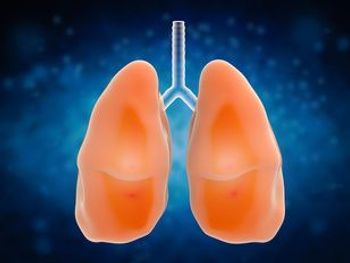
Older adults and infants were found to have the highest mortality and hospitalization rates of respiratory syncytial virus (RSV).

Older adults and infants were found to have the highest mortality and hospitalization rates of respiratory syncytial virus (RSV).

In a recent study, immune-inflammatory index, neutrophil-to-lymphocyte ratio, and platelet-to-lymphocyte ratio were associated with infection of respiratory syncytial virus (RSV) in children.

Residents of homeless shelters were tested for respiratory syncytial virus (RSV) and influenza, which were found to have similar prevalence in the population.

Hospitalizations of infants in 4 middle-income countries were associated with respiratory syncytial virus (RSV) during the respiratory illness season.

The burden of respiratory syncytial virus (RSV) and the effect of vaccines could be affected by underestimation of RSV in older adults.

Respiratory syncytial virus (RSV) was detected easiest when using reverse transcription polymerase chain reaction (RT-PCR) tests in a pediatric population.

Nirsevimab was unanimously recommended by the FDA Advisory Committee for immunization against respiratory syncytial virus (RSV) in infants.

The Respiratory Infection Intensity and Impact Questionnaire (RiiQ) Symptoms Scale demonstrated logical patterns of upper and lower respiratory symptoms among participants.

The sharp reduction in costs for hospitalization from respiratory syncytial virus (RSV) in infants 3 months and younger after the COVID-19 pandemic outweighed the cost increase for children aged 3 to 24 months.

Children were hospitalized most commonly due to respiratory syncytial virus (RSV) compared with influenza and COVID-19 during a season with respiratory pathogen cocirculation.

Although lack of routine testing and limitations to current diagnostic testing likely lead to underreporting of respiratory syncytial virus, RSV still poses a substantial economic burden.

The Biden administration said it will expand health care access, including mental health care, to students; depression reaches an all-time high in the United States; the FDA’s independent vaccine advisers are meeting to discuss the safety and effectiveness of a respiratory syncytial virus (RSV) vaccine.

A recent study compared hospitalizations and ages of children with respiratory syncytial virus (RSV) infection before the pandemic and afterwards.

An analysis of an urban population of children indicated that age was a strong predictor in the diagnosis of respiratory syncytial virus (RSV) and influenza.

A study found that not being infected with respiratory syncytial virus (RSV) in the first year of life was associated with a decreased risk of developing asthma in childhood.

A vaccine for adults 60 years and older was approved by the FDA for protection against respiratory syncytial virus, making it the first such vaccine to be approved worldwide.

Further epidemiologic studies on nonpharmaceutical interventions are warranted to assess their relationship with respiratory syncytial virus (RSV).

A nomogram that could assist physicians in predicting severe respiratory syncytial virus (RSV)–associated bronchiolitis early on was established and validated in a recent study.

A new study found that the MVA-BN-RSV vaccine was able to lower symptom scores and resulted in fewer confirmed RSV infections vs placebo.

Although the 28-day mortality for patients with respiratory failure did not differ between patients with and without respiratory syncytial virus (RSV), complications were more common in those with RSV.

Long-term temporal and spatial trends, as well as changes, can be estimated using hospital admission data when the burden on health care systems is increased.

Patients who were admitted to the hospital for respiratory syncytial virus (RSV) had a higher risk of a complex hospital course and had higher rates of respiratory support compared with patients admitted for influenza.

A recent study found the mortality rate for patients hospitalized for respiratory syncytial virus (RSV) to be 6.6%, with approximately 25% of hospitalized patients requiring admission to the intensive care unit.

A new study has found that respiratory syncytial virus (RSV) infections were more frequent and severe compared with influenza A/B in older adults.

Payers are looking to roll back on paperwork requirements for prior authorization (PA); CMS and Medicare Advantage (MA) insurers battle over new regulations; Johnson & Johnson (J&J) falls behind Pfizer and GSK for vaccine approval.

259 Prospect Plains Rd, Bldg H
Cranbury, NJ 08512
© 2025 MJH Life Sciences®
All rights reserved.
